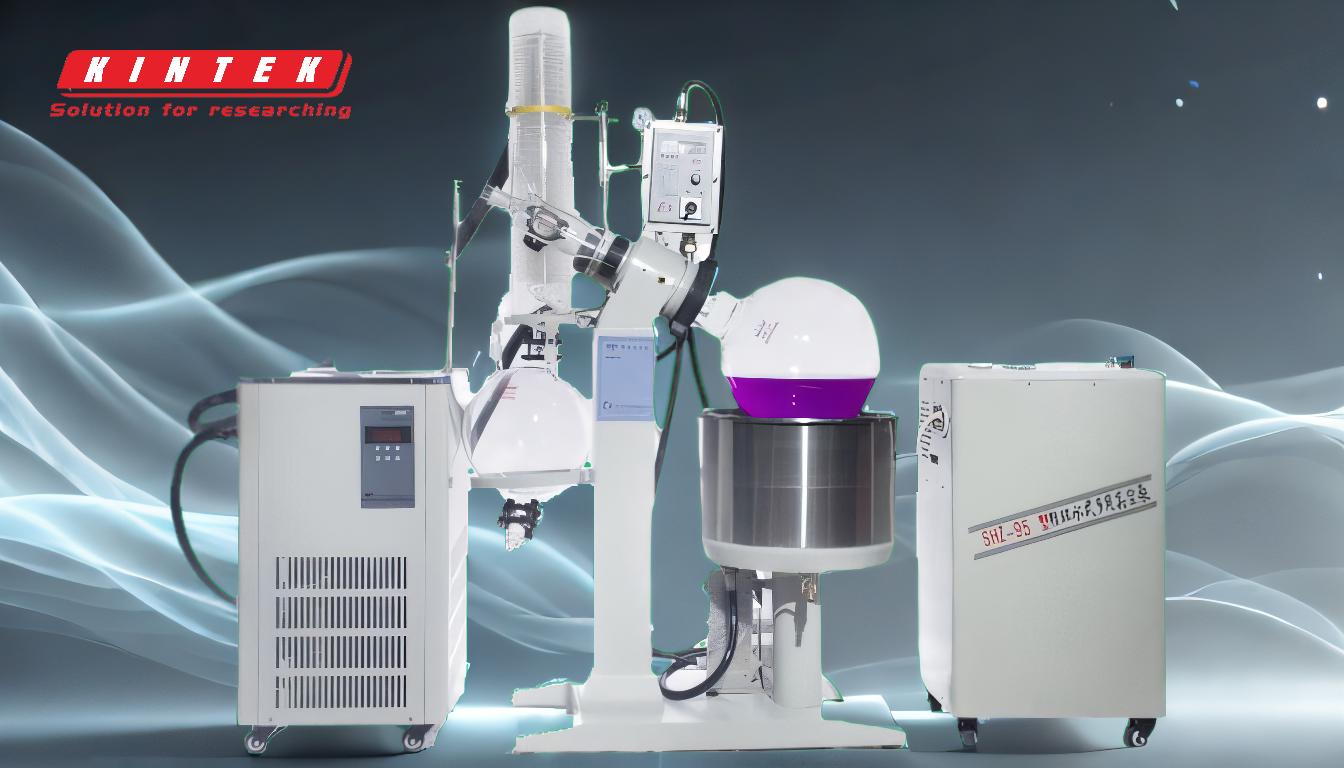Distillation is a widely used purification technique that separates components of a mixture based on their volatility and boiling points. By heating the mixture, the more volatile components vaporize first, leaving behind less volatile substances. The vapors are then condensed back into liquid form, resulting in a purified product. This process is highly effective for isolating specific components or increasing their concentration in a mixture. Distillation is utilized in various industries, including chemical manufacturing, pharmaceuticals, and even household applications, due to its ability to produce high-purity products.
Key Points Explained:

-
Principle of Distillation:
- Distillation relies on the differences in boiling points of the components in a mixture. When heated, the component with the lower boiling point vaporizes first, while the higher boiling point components remain in the liquid phase.
- This selective vaporization and subsequent condensation allow for the separation and purification of the desired substance.
-
Steps in the Distillation Process:
- Heating: The mixture is heated to a temperature where the more volatile component(s) begin to vaporize.
- Vaporization: The vaporized component rises and travels through a condenser.
- Condensation: The vapor is cooled in the condenser, converting it back into a liquid.
- Collection: The condensed liquid, now purified, is collected in a separate container.
-
Types of Distillation:
- Simple Distillation: Used for mixtures with significantly different boiling points. It involves a single vaporization-condensation cycle.
- Fractional Distillation: Suitable for mixtures with closer boiling points. It uses a fractionating column to allow multiple vaporization-condensation cycles, enhancing separation efficiency.
- Vacuum Distillation: Applied to heat-sensitive compounds that decompose at high temperatures. It reduces the pressure, lowering the boiling points of the components.
- Steam Distillation: Used for separating heat-sensitive organic compounds, such as essential oils, by introducing steam to lower the boiling points.
-
Applications of Distillation:
- Chemical Industry: Used to purify solvents, separate petroleum products, and produce high-purity chemicals.
- Pharmaceuticals: Essential for isolating active pharmaceutical ingredients (APIs) and ensuring product purity.
- Food and Beverage: Used in the production of alcoholic beverages, essential oils, and flavor extracts.
- Water Purification: Distillation removes impurities and contaminants from water, producing high-purity water for laboratory and industrial use.
-
Advantages of Distillation:
- High Purity: Produces highly purified products by effectively separating components based on their volatility.
- Scalability: Can be adapted for small-scale laboratory use or large-scale industrial production.
- Versatility: Applicable to a wide range of mixtures, including liquids and gases.
-
Limitations of Distillation:
- Energy Intensive: Requires significant energy input for heating and cooling, making it less efficient for certain applications.
- Heat Sensitivity: Not suitable for compounds that decompose at high temperatures unless vacuum or steam distillation is used.
- Complex Mixtures: May require multiple distillation steps or advanced techniques like fractional distillation for mixtures with similar boiling points.
-
Factors Affecting Distillation Efficiency:
- Boiling Point Difference: The greater the difference in boiling points, the easier it is to separate the components.
- Purity Requirements: Higher purity demands may necessitate additional distillation steps or specialized techniques.
- Equipment Design: The efficiency of the distillation setup, including the condenser and fractionating column, impacts the separation process.
By understanding these key points, one can appreciate how distillation serves as a fundamental and versatile method for purifying products across various industries. Its effectiveness lies in its ability to exploit the physical properties of substances, making it an indispensable tool in both laboratory and industrial settings.
Summary Table:
| Aspect | Details |
|---|---|
| Principle | Separates components based on boiling points and volatility. |
| Steps | Heating → Vaporization → Condensation → Collection. |
| Types | Simple, Fractional, Vacuum, Steam Distillation. |
| Applications | Chemical, Pharmaceutical, Food & Beverage, Water Purification. |
| Advantages | High purity, scalability, versatility. |
| Limitations | Energy-intensive, heat sensitivity, complex mixtures require advanced steps. |
| Efficiency Factors | Boiling point difference, purity requirements, equipment design. |
Discover how distillation can enhance your processes—contact our experts today for tailored solutions!









